In marathon season, after a marathon of coverage including the fictionalized film “Patriots Day” and the documentary play “Finish Line,” the latest entry in the reportage of Boston’s beloved race comes in first with the last word. My review here reprinted from The ARTery.
“Boston” is the first feature length documentary film on the history of the race — and it is a beauty. The filmmakers have assembled all of its moving parts to render stirring, authoritative, exhaustively-researched, emotionally fervent and intimately detailed context of what came before and after the tragic events that exploded at its finish line in 2013, and culminated in the triumphant rebirth of this race in 2014.
“Boston” has a leg up on the subject because of its award-winning director Jon Dunham, himself a marathoner, who tells this story with the authority of one who knows this world from the inside out. Dunham and Academy Award-nominated producers Megan Williams and Frank Marshall had exclusive access to the Boston Athletic Association’s archival photos, video and memorabilia. An emotive original soundtrack composed by Emmy Award-winning composer Jeff Beal (“House of Cards”) was recorded at Boston’s Symphony Hall and performed by members of the BSO. Matt Damon narrates with soulful calm and hometown cred. The film had its world premiere at the Boch Center’s Wang Theatre on April 15, and if my response to watching the movie alone is any indication, the impact of these images on a huge screen, deepened by an original score played live, must have been overwhelming.
The film takes off like a shot as an old-fashioned anchorman’s voice pipes up from a dark screen and we are hurtled back in time with newsreel footage of a race in black and white — when the marathoners ran all 26 miles and 385 yards through eight cities and towns wearing something akin to bedroom slippers. The winning trophy has a unicorn on it, though BAA officer and museum curator Gloria Ratti turns to the camera and offers $500 to anyone who knows why.
These are the kinds of carefully observed details the filmmakers have seized on to give the film texture, humanity and emotional warmth. By the time the movie is over we will have traversed the vagaries of the race’s course and understood its global reach, from the men who began it in 1897 to the colorful cast of characters who have run it, their stories, hearts and souls revealed through an ingenious integration of history and current events. The film roots us deep in the history of an event universally acknowledged as the oldest and most prestigious marathon in the world.

This movie is more than a retread, but rather a fleshing out of those familiar stories that have become vestigial. We learn much more about beloved two-time marathon winner and son of a mailman Johnny Kelley, the endurance of the ultra-focused champion Amby Burfoot and his loose-limbed pal Bill Rodgers who dominated the sport, but also about an orphan named Clarence DeMar who first won the race in 1911 and was considered the best runner of his generation. A typesetter at a newspaper, DeMar won the marathon then headed to the office and set the type for the front page story of his own victory.
We are regaled with tales of the Greek and Japanese and aboriginal competitors, and the first African winners Abebe Bikila and Ibrahim Hussein who took the sport by storm. We revisit the footage of legendary female pioneers like Kathrine Switzer fighting off a race official who attempted to physically yank her off the course. And before her Bobbi Gibb the first woman to finish the Boston Marathon in 1966 but who was told by male racing authorities when she applied to run that women were “not physiologically able to run marathon distances.” Priceless newsreel footage captures one race official shrugging off her application with, “We can’t cope with it one way or the other; that’s all.”
The film is jam-packed with highlights and information that run the gamut from the Rosie Ruiz hoax and the controversies around prize money and sponsorships to the charity runs, the wheelchair entries and non-elite everyday runners who share the course, to the Wellesley scream tunnelers, the crown of olive leaves dipped in copper, silver and gold, and one Japanese winner who threw his away.
And then there was the terror — the bombs that maimed and killed. The filmmakers bookend the film with that shocking event and do so with extraordinary grace, precision and clarity. The soundtrack crescendoes to the sudden blast of the first explosion, which stunned me yet again; then the second blast, which gradually gives way to sirens and a cacophonous symphony of cries and chaos in real time.
The question faced by race director and one time runner Dave McGillivray propels the rest of the film: “Would people want to come back? … Is this a dangerous event?” The film documents the resoundingly triumphant answer as “Team Martin Richard” gathers in the rain at the memorial and President Obama declares from a pulpit that Boston will rise. The film is sealed with a series of images of a city embracing its wounded self, and we feel the resonance of the deeper meaning of this marathon: It is the heroic significance of the runners and the inviolable and indispensable relationship of the spectators to those runners which carry us all across the finish line. The masterful organization and evocative editing of these stories, every shot framed to convey the soul of this sporting event, is overwhelmingly powerful.
The last sequence culminates in the running of the 2014 race, rising from the ashes of the the 2013 tragedy, and somehow — though we know the outcome — it’s a nail biter. As someone says in the course of the film, “This is beyond running.” And it will leave you breathless.
The film opens to the public April 19 on Fathom Event screenings across the country!

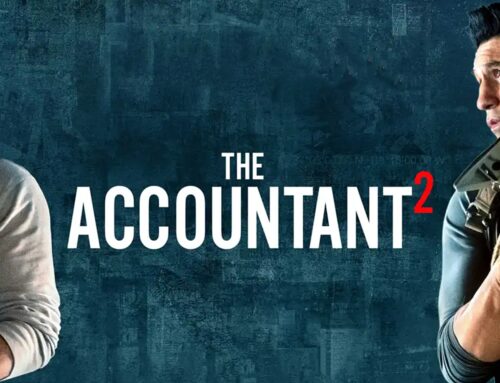
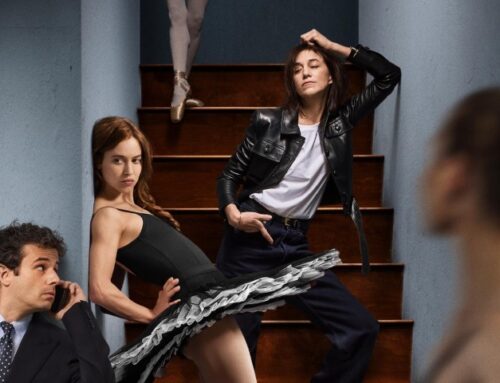
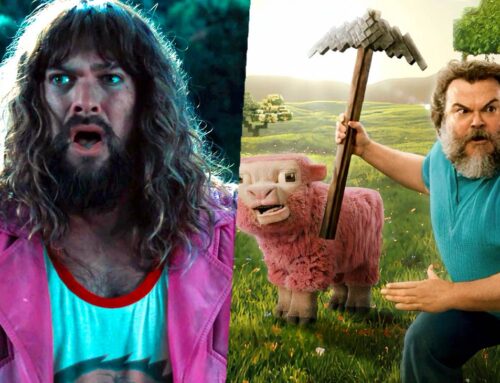
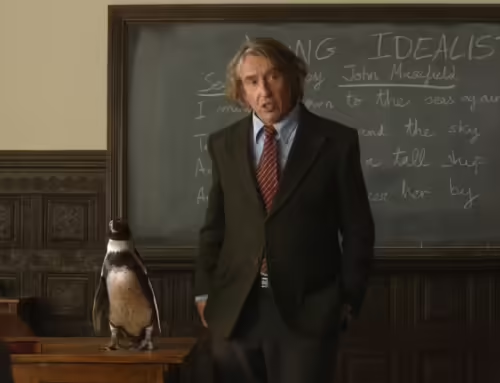
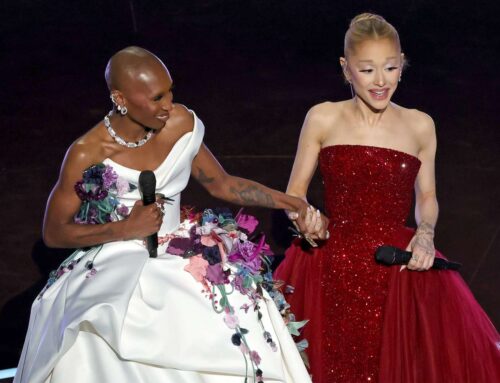
[…] Joyce Kulhawik reviews the new documentary BOSTON […]